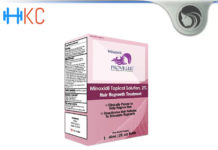Where there’s a supplement that provides health benefits—there are always some potential side effects. When we talk about fish oil supplements, which are essentially fish oil purified and encapsulated—there’s very little human intervention involved. Hence, unlike supplements that go through extreme processing, there’s no eliminating other natural effects on the body.
That said, fish oil supplements, when consumed within safe dosage limits, have very few side effects. However, it’s best to stay informed about any new supplements you introduce to your diet. Given that fish oil supplements and the Omega 3 in these work best when taken regularly, you need to be aware of any side effects you’ll experience.
What We Know About Fish Oil Supplements
To understand what and why fish oil has side effects, you need to know how it targets the human body.
- The topmost benefit of Omega 3 is its heart health benefits. It plays a vital role in regulating the deposition and burning of fat content, thus it can reduce levels of triglycerides.
- Fish oil also helps minimize the symptoms of skeletal diseases such as rheumatoid arthritis. Various studies show that due to its anti-inflammatory properties, fish oil improves bone and joint health.
- One of the most amazing perks of fish oil is improving mental and visual functions. Not only does omega 3 in fish oil contribute to brain development from fetal to elder stages of life, but also helps improve eyesight.
As components in fish oil affect major organs of the body, these leave behind some side effects. Rest assured, these are quite mild.
Potential Side Effects Of Fish Oil
You don’t have to worry about side effects of fish oil every time you take the supplements; many of these potential effects take effect if you cross past recommended dosage limits, consume low-quality fish oil, or have any ongoing sensitivities, allergies, or health conditions that don’t react well with fish oil.
- ‘Fishy’ Burps And Bad Breathe
Many people report experiencing a fishy aftertaste and unpleasant burps after they consume fish oil supplements. Another possible result is bad breath, which may cause slight awkwardness being in public!
However, you can avoid these symptoms by using appropriate fish oil supplements. Always check the label to ensure expiration dates. The fresher the fish oil, the better. Also, always store at cool temperatures to prevent the supplement from going rancid fast. You can also opt for a supplement that contains an antioxidant like vitamin E to keep the fish oil fresh and prevent any fishy aftertaste.
Moreover, taking fish oil with food helps minimize the fishy breath. This is especially important if you’re consuming fish oil as a liquid.
Fish oil softgels are much more ideal than fish oil liquid; the coating is designed to prevent the fish oil from dissolving in the stomach. Instead, the supplement safely passes through to the small intestine, where it absorbs without causing any burping.
- Low Blood Pressure
The heart benefits of fish oil are widely known, amongst which is the supplement’s incredible role in reducing blood pressure. In one clinical trial, it was discovered that consuming Omega 3 fatty acids daily can result in a significant decrease in both systolic and diastolic blood pressure.
Another research has confirmed that fish oil can be extremely useful for people suffering from constant hypertension and elevated cholesterol levels.
The benefits of Omega 3 fish oil are evident for individuals with high blood pressure. However, they can pose significant problems for those with low blood pressure. It’s necessary to know that fish oil can potentially interact with medications that lower blood pressure. If you are currently on any medication for blood pressure, discuss the safe use of fish oil with your physician.
- Mild Diarrhea
Taking fish oil can sometimes lead to a particularly unpleasant and awkward side effect: diarrhea. The chances of these side effects occurring are higher when the dosage of fish oil is also greater. Diarrhea happens to be one of the most common side effects of fish oil, along with flatulence. It’s not just fish oil though; other Omega 3 supplements can also have the same effect.
If you experience diarrhea after taking fish oil supplements, try taking your supplements with meals. Reducing the dosage is another way to combat digestive troubles.
Since early absorption is a possible reason for digestive troubles, you can freeze your fish oil softgels. This prevents them from breaking down prematurely during digestion. Additionally, if you combine your fish oil with a digestive enzyme, it may help facilitate better digestion and absorption.
- Acid Reflux
Fish oil has a great effect on your cardiovascular health. However, unfortunately, some people experience heartburn after consuming fish oil supplements daily. The reason behind heartburn is fish oil’s high fat content, which may also cause other symptoms of acid reflux such as nausea and stomachache.
As you would with any fatty meals, try adding digestive tract-friendly foods when taking meals with fish oil or if you take fish oil supplements. Another way to control acid reflux is by dialing down your dosage.
Additionally, rather than taking multiple fish oil softgels or capsules at the same time, divide and conquer—with as much time difference between the doses as possible. You can take one out of two fish oil capsules with your breakfast (but no dairy products within 1 hour of administration!), and another with evening meals.
- Vitamin A Toxicity
Some brands manufacture Omega 3 fish oil supplements along with other nutrients, such as vitamins. Some vitamins can even exist naturally in certain fish oils. One of the common ingredients you’ll find in some fish oil capsules is Vitamin A, which is generally beneficial for the body. It’s also naturally present in certain fish oils, such as cod liver oil. However, be cautious when choosing fish oil supplements, as excessive amounts of vitamin A can be harmful.
You may aim to complete your ideal dose of Omega 3, but in doing so you may overdose on Vitamin A. Too much vitamin A can result in unpleasant side effects such as dizziness, nausea, skin irritation, and even joint pain.
Moreover, consistently taking excessive vitamin A intake may result in liver damage. Therefore, it is crucial that you carefully check the label to know about the vitamin A content in your Omega 3 fish oil supplement—and stick to a moderate dosage.
Fish Oil Side Effects: The Verdict
Play it safe and follow the tips and advice for proper consumption of fish oil supplements. Don’t forget: the Food and Drug Administration (FDA) states that the maximum safe intake of Omega 3 fish oil is 3,000 mg per day. Take your fish oil buy from here in moderation, divide the dosage as necessary for comfort, and consult your physician if on any medication to avoid any drug interactions. Fish oil supplements contain a world of nutritional richness—so make sure you’re taking it correctly to get the maximum benefits!























